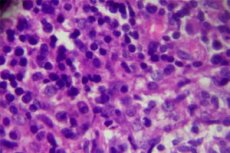New publications
Study reveals weakness in pathogens of drug-resistant tuberculosis
Last reviewed: 02.07.2025

All iLive content is medically reviewed or fact checked to ensure as much factual accuracy as possible.
We have strict sourcing guidelines and only link to reputable media sites, academic research institutions and, whenever possible, medically peer reviewed studies. Note that the numbers in parentheses ([1], [2], etc.) are clickable links to these studies.
If you feel that any of our content is inaccurate, out-of-date, or otherwise questionable, please select it and press Ctrl + Enter.

A University of Otago-led study has identified a critical weakness in drug-resistant strains of Mycobacterium tuberculosis, opening up a new way to kill them.
In a study published in Nature Communications, the scientists developed a genetic platform to identify biological pathways in a drug-resistant strain of Mycobacterium tuberculosis that are particularly sensitive to inhibition.
Senior author of the study, Dr Matthew McNeil, from the University of Otago's department of microbiology and immunology, said the technology had enabled the pathogen to identify a weak spot, "essentially their Achilles heel".
"We were then able to identify drugs that target these weak spots and can quickly kill these drug-resistant strains.
While our research specifically focuses on Mycobacterium tuberculosis – the world's leading cause of infectious disease, surpassing COVID-19 in 2024 – this technology could be applied to other drug-resistant pathogens,” said Dr. McNeil.
Dr. McNeil describes these pathogens as "a major public health problem."
"There are often limited treatment options for people infected with drug-resistant pathogens, and there is a real threat that they could undermine the success of many standard medical treatments."
He believes that new developments like those presented in this study are needed to combat these infections.
"We need new treatment strategies that can not only quickly kill these pathogens, but also prevent them from occurring.
Drug-resistant infections are scary, but if we think outside the box when developing new drugs, we can find effective solutions to prevent this problem."
